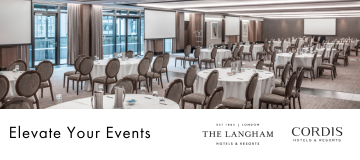What does it take to produce a perfect panel?
Let’s look at some of the key elements that will help your next panel session stand out:
Use a professional facilitator or host. Too often people get into trouble using “someone on the committee” or “the CEO could do it”. If you want the panel session to shine, get someone who knows what they are doing to take it to the next level.
Have fewer panellists. Panels with more than three people don’t have enough time to properly draw out the different opinions and perspectives. On a larger panel, someone won’t get much time to speak and they may look and feel neglected. It is better to have two panels of three people than one panel of six people.
Get them on and off quickly. Don’t worry about introductions here. Anything other than who they are and their right to be part of the panel is a waste of good panel time. At the end, don’t ask for closing statements, simply show appreciation and leave the crowd wanting more.
Make them representative. The people on the panel need to represent the audience. While I would like to say “manels” are a thing of the past, they’re not. Representation matters and panels MUST reflect this.
Brief them well. Panels are a great opportunity to give exposure to sponsors. It is NOT a great opportunity for them to spruik their products or services. A good briefing will prevent that. It will also prevent someone getting on their high horse about a subject. Let them know that we want their input and we want it to be short, sharp and powerful. Don’t ramble.
Mix up the questions. Trust your panel. You don’t need to ask each panellist the same question. If someone has valuable input to a question, trust them to say “I would like to add to that” and include them in the conversation. By asking each panellist the same question you are wasting the opportunity to ask more questions. Ensure your host directs each question to the most revelant of the panellists to begin with.
Pre plan how you will take audience questions. It is powerful to ask for questions from the audience throughout the panel. This enables the facilitator to thread them through the session and allows delegates to own the session more. This is best done using the conference app rather than a microphone. Questions via microphone run the risk of a delegate performing a monologue and wasting time.
Be selective in how often you use panels. Some conferences seem to use panels as session fillers. They couldn’t get the speaker they wanted so “let’s do a panel instead” and they end up with multiple panels that don’t have the impact they want.
Have fun. A sense of fun and joviality makes the conversation more engaging for delegates. It makes them feel like they are part of the conversation rather than watching one. It also helps delegates retain knowledge from the session.
Panels can be a powerful part of your next event. Take the time to plan them out and prepare the presenters well so they can be a perfect part of your professional practice.
Warwick Merry is a global award-winning event host and event evangelist. For 25 years he has been hosting and producing online, hybrid and in-person events. He is the host of the Making Events Awesome livestream and monthly Conference Organisers Forum.




















